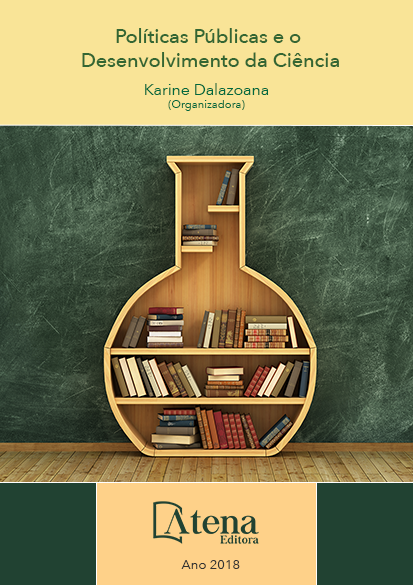
O EXPERIMENTO “LABIRINTO ELÉTRICO” COMO FERRAMENTA DE ENSINO-APRENDIZAGEM DA ELETRICIDADE
Desde os primórdios da
humanidade, o homem sempre se mostrou
argumentativo sobre diversos assuntos, entre
eles à eletricidade, que hoje é responsável por
tantas facilidades no mundo moderno. Através
do experimento “labirinto elétrico” foi estudado e
abordado vários conteúdos sobre a eletricidade,
como: contexto histórico; carga elétrica;
corrente elétrica; circuitos elétricos; diferença
de potencial e etc. O trabalho foi realizado em
uma Escola Estadual da cidade de Teresina-
PI com uma turma do terceiro ano do ensino
médio. Para analisar o grau de aprendizagem
dos alunos, foram realizados pré e pós-testes
através da aplicação de questionários, antes
e ao final do desenvolvimento do estudo
como forma de analisar seus conhecimentos
prévios sobre a temática e sua aprendizagem.
Por intermédio da utilização de experimento
em sala de aula, pudemos comprovar que há
uma melhor assimilação do conteúdo por parte
dos alunos e mostramos que dessa forma é
possível criar uma expectativa e curiosidade na
aprendizagem instigando os alunos ao “querer
saber”. E com a utilização desse experimento
utilizado na escola para desenvolvermos
conteúdos na área da física, especificamente
a eletricidade, foi possível percebermos como
essa prática é bastante eficiente. Este estudo
foi fundamentado segundo as teorias de Fialho
(2007), Ausubel (1976) e nos PCN’s (2000).
O EXPERIMENTO “LABIRINTO ELÉTRICO” COMO FERRAMENTA DE ENSINO-APRENDIZAGEM DA ELETRICIDADE
-
DOI: 10.22533/at.ed.9561805124
-
Palavras-chave: Ensino de Física, Experimento, Aprendizagem em Eletricidade.
-
Keywords: Teaching Physics, Experiment, Learning in Electricity.
-
Abstract:
Since the beginnings of mankind,
man has always been argumentative about
various subjects, among them electricity,
which today is responsible for many facilities
in the modern world. Through the experiment
“electrical labyrinth” was studied and addressed
several contents about electricity, as: historical
context; electric charge; electric current; electric
circuits; potential difference and etc. The work
was carried out in a State School in Teresina city
(Piauí State) with a third-year high school class.
To analyze the students’ degree of learning,
pre and post-tests were carried out through the
application of questionnaires, before and at the
end of the development of the study as a way
of analyzing their previous knowledge about the
thematic and their learning. By intermediate the
use of a classroom experiment, we were able to prove that there is a better assimilation
of the content by the students and we show that this way it is possible to create an
expectation and curiosity in the learning by instigating the students to “want to know”.
And with the use of this experiment used in school to develop content in the area of
physics, specifically electricity, it was possible to see how effective this practice is. This
study was based on the theories of Fialho (2007), Ausubel (1976) and in the PCN’s
(2000).
-
Número de páginas: 15
- Honório Pereira da Silva Neto


